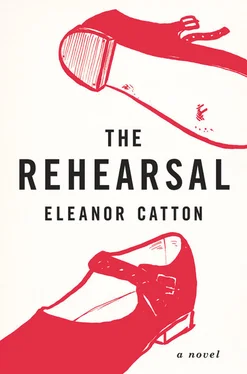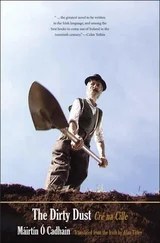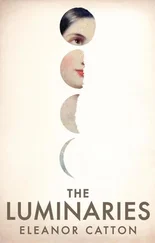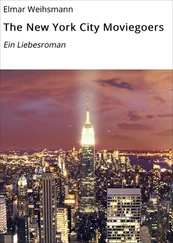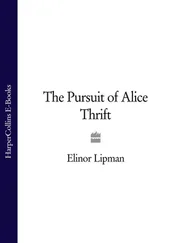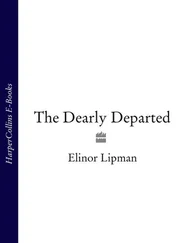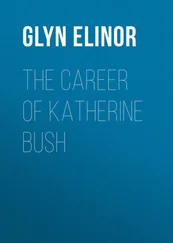“We’ll get a real dialogue going.”
“That’s right.”
There was a brief pause as everyone digested the formula and swiftly began to prepare what they would later say. Then one of the boys got to his feet. He transformed into a different person as he stood up, a man rising like a phoenix out of the pallid, ashy figure that had been the boy. Once he was standing, hands on hips and his jaw thrust back and his bare feet apart and solid on the floor, nobody doubted who he had become.
The man said, “When the girls spoke of it, they said all the way , as if the process was a passage, a voyage, some sort of ritual first crossing of a dimly charted sea. Victoria said those words to me— all the way . She asked a question. She asked, Do you want to go all the way with me? as if her departure were already scheduled, her moorings already cast, and I could simply choose to board and join her, to sail away with her and disappear. All the way , she said. Every inch of it. Every inch of that windblown ocean-salted bucking rolling passage. Every inch.”
He sat down. There was the briefest of pauses again, and then Stanley stood up. He stood with his weight on one leg like a girl, one arm crossed over his chest and holding his hip, the other gesticulating with a crooked elbow and a flat palm.
“He took a long time to answer the question,” Stanley said. “At first he gave this little shout of a laugh and gathered me up into him and kissed my crown. Sometimes when he kissed me he’d make this keening sound in the back of his throat, like a puppy almost, some kind of ghostly underwater voicing of some deep-felt feeling, right inside. Once he burrowed his head into the pilled blue wool of my armpit and moaned out loud and he said, I just feel so blessed, Victoria. I feel so incredibly, incredibly blessed. We were sitting there on the cream leather sofa in his living room and I said, Do you want to go all the way with me? and he said, Oh, you precious, precious little girl. Not yet. Not just yet. Let’s just enjoy the innocence for a moment, before it dissolves and we can never have it back again. Let’s just take this moment to enjoy how much is still to come.”
Stanley sat down. All around him the students were stern and glassy. They had only half-listened to his performance, all of them preoccupied already with the inward rehearsal of what they would say when they got up in front of the rest, and how they would contrive to make the words seem spontaneous and unrehearsed and pure.
One of the girls got up. Like any girl who tries to play a grown man, her performance was disproportionate and slightly embarrassing. She let her voice deepen and placed her feet wide apart and assumed a manner that was overly earnest and gruff. She raised her chin and said, “Could it have been one of the others, if this girl had never dared? Could it just as easily have been the girl to her right or left, another saxophonist in the front row of the jazz band, some girl whose breasts were smaller, whose gaze was sharper, whose fingernails were squatter, maybe, and poorer in shape, whose jersey was coming unraveled at the hem? All of them have smiled at me, looked hard at me, laughed with me. When we won our section at the high school jazz festival, some of them even hugged me. Would it have been different, with one of them?”
Another girl got up as this Mr. Saladin was returning to her seat on the floor. The new girl spread her hands and said, “It’s funny to think that I never saw him wake up. I never rolled over to see him still sleeping, never saw his eyelids waxed and still in the pale morning light, never burrowed down into the sweet hot breath of the bed and felt him stir and lift his heavy sleepy arms to let me in. We had no mornings-after. We had no nights, no long uninterrupted nights where we could sleep and sleep and sleep. We had no silence. We never breakfasted together. We never swam together, shopped together, walked to the cinema together; I never called him at work to check when he was due to come home; I never pegged his laundry on the line. I never knew his mother or his nephews or his life.
“All these are adult things, and they’re all things I never had with him. People say, now, that I was a child wrongfully thrust into an adult’s role. People call it an adult relationship, illicit and untimely and premature. In fact it was the opposite. It was Mr. Saladin who had the adolescent relationship, all backseat whispers and doorway fumbles and getting home before midnight, waiting for the parents to go to sleep or leave the house, sending messages in code and on the sly. I didn’t play the adult. Mr. Saladin played the child.”
August
Opening night drew nearer and nearer. Without a central script, the devised performance did not seem to be approaching any kind of finished state, but merely began blooming and swelling in odd places, like an ancient wrinkled party balloon that was being forcibly refilled with breath. Tempers in the group ran high, and fractures began to form around the strongest personalities as the dissatisfied students met in whispering mutinous pairs in doorways around the Institute.
“Andy strutting around in that costume like that makes me sick ,” was how the whispers ran. “Thinks he’s God’s gift to the stage. Every time he walks past I want to stick out a leg and trip him up.”
“Do you know how hard it is to act in a scene with Oliver if Esther’s around? Today she was practically humping his leg.”
“If Felix clears his throat like that one more time I swear I am going to clock him.”
“What is this show, like a two-hour tribute to one guy? Why does Sam get so much stage time? It’s not like he’s the cream of the crop or anything.”
The real risk was that these dissatisfied students, the whisperers, angry at the comparative insignificance of their parts and sick of the officious prodding from the others in the group, might want so much to disassociate themselves from the performance that on opening night they might intentionally act poorly, calling deliberate attention, through their ham acting, to the distance between the actor and the role. This became a tacit threat; it hung in the air around them, and the actors became wary and mistrusting, hugging their costumes tighter to their chests as if they were trying to hold the fractured shell of their ego in one place with the force of their hands.
Leaving the Institute after a rehearsal one day, Stanley bundled his bag of take-home props under his arm and threw his head back for a moment to enjoy the pale afternoon sun. He had left quietly, through the backstage area and out the players’ door into the alley, slipping away from his scowling, shadow-eyed classmates who were still arguing as they stacked the chairs away and cleared the rehearsal room for the next morning.
He rounded the corner into the northern quadrangle and to his surprise came face to face with the girl who had appeared so oddly and suddenly in the wings of the auditorium stage, the wide-eyed schoolgirl who had collided with him in the velvet black. He stalled a moment as he recognized her, again recalling the brief and breathy impact in the dark, the girl gasping and stricken and looking down at him in mute apology as he fell.
When his scene was over he had returned to the wings to seek her out, but she had disappeared.
“There was somebody watching,” he had said later to the boy Felix, as in their dressing rooms they wiggled out of their costumes and returned their wigs to the faceless polystyrene heads that lined the top of the dresser. “From the wings. She must have come in by the players’ door. I guess it was open.”
“Did you tell her to get out?” Felix said, not really interested. He was unlacing his bodice aggressively, and Stanley heard the worn and dirty laces rip.
Читать дальше
